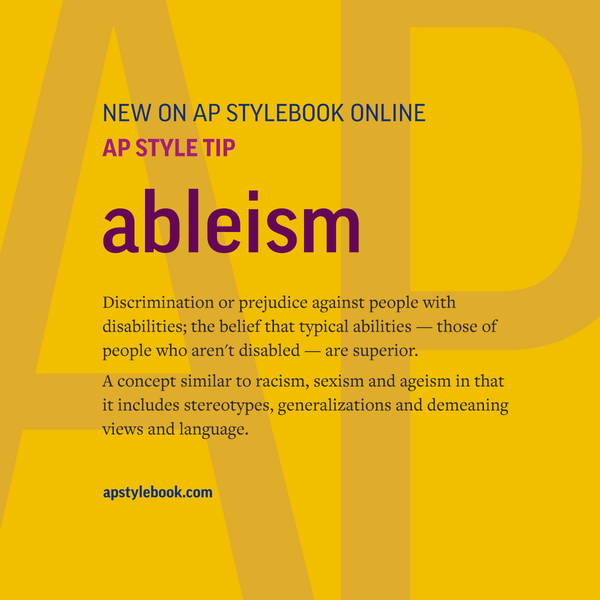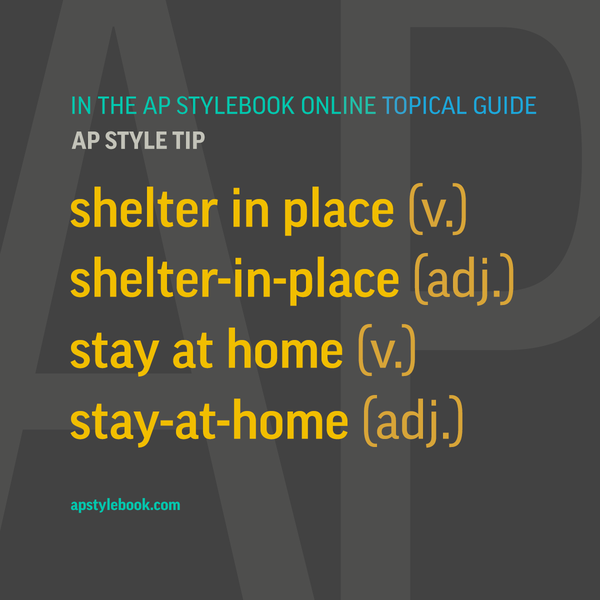While the Associated Press (AP) style editors have moved away from annually publishing a new edition of the AP Stylebook in favor of a biennial print update, the organization still works year-round to compile updates. The 2021 AP Stylebook updates were released this year at the conference of ACES: The Society for Editing.
The AP Stylebook editors reserved fewer changes for the conference itself, opting to make changes throughout the year that applied to coverage of the major news events of 2020, including the pandemic and social justice movements.
“We’ve tackled a number of basic style points such as hyphenation and specific capitalization questions in the past several years,” Paula Froke, editor of the AP Stylebook, said in a blog announcing the changes. “We do have more of those fundamentals on our list, but we put most of them on hold this year because of more urgent issues.”
The Continuing Evolution of Covering Race, Ethnicity and Identity

Not surprisingly, many of the most important changes to the 2021 AP Stylebook relate to coverage of race and ethnicity, as issues of social justice dominated headlines throughout 2020.
A new entry updates “anti-Semitism” to “antisemitism.” AP Stylebook editor Froke said the conversation has bubbled up over the last few years and cited a decision by the Anti-Defamation League and other organizations to change the spelling as a big influence for the update. The entry notes that the previous style to hyphenate and capitalize within the phrase suggests that it could “give credence to the idea that Jews are a separate race. In response, a growing number of Jewish organizations and others have settled on the style antisemitism.”
Other updates include:
- Race-related coverage: This entry has new wording reminding writers and editors to be aware that words or phrases that seem innocuous to one group can carry negative connotations, or even be considered slurs, to another. It also added definitions to words like “systemic racism,” “structural racism,” and “institutional racism.”
- Ability: Writers should “use care and precision when writing about disabilities and people with disabilities, considering the impact of specific words and the preferences of the people you’re writing about,” Froke said. Recently added entries include entries on birth defects, special needs and special education and more, including:
- The stylebook now includes an entry on “ableism,” a form of discrimination where there is a belief that typical abilities – those of people who aren’t disabled – are superior.
- A revised “disabilities” entry says that ablism is “a concept similar to racism, sexism and ageism in that it includes stereotypes, generalizations and demeaning views and language.” The entry also now reminds writers and editors that words which may seem harmless to some people can have deeply personal or offensive meetings to others.
- Ethnicity: Froke also presented several new Asian-American related entries, including one to define “Pacific Islanders” while avoiding the acronym AAPI (Asian Americans and Pacific Islanders). These entries also include guidance on words and phrases to avoid when identifying a person in a story, such as avoiding using “Asian” as shorthand for “Asian American.”
For additional updates on many of these topics, check out our blog on 2020 changes to the AP Stylebook.
The Pandemic Continues to Take Center Stage

The last print edition of the AP Stylebook, published in 2020, did include terms like “coronavirus” and “COVID-19,” but the 2021 online stylebook has many new and revised entries on the virus – including the Coronavirus Topical Guide, which helps writers standardize language in coverage. Some of the key takeaways from the guide include:
- Epidemic vs. Pandemic: Generally speaking, using the word “epidemic” for a health issue that has a wide impact on a region, and pandemic for “an epidemic that has spread wider, usually to multiple countries or continents, affecting a large number of people.”
- Referencing variants of the coronavirus: The stylebook now advises against using numbers given by scientists, and it also recommends against using country labels, like “South African variant,” to keep in line with the World Health Organization’s move from assigning geographic, individual and animal names of diseases to avoid stigmatization. Instead, it advises rephrasing to “the variant first detected in South Africa” or similar phrases.
- The pandemic and the economy: The AP Stylebook released a topical guide to help define and refine terms commonly associated with discussing the economic impact of the pandemic, including recession vs. depression, shutdown vs. shut down, and other terms.
“We’re proud of the work we’ve done on style and deeper issues related to coverage of race-related matters, the pandemic, politics, unrest, and all the related news of the past year,” Froke said in an ACES blog about the updates. “We look forward to doing even more on those topics in the coming year, while hopefully also having time to deal with our backlog of other important topics and questions.”
The AP Stylebook will continue to release updates and guidance on writing throughout the year via its online Stylebook, and on social media via platforms such as Facebook, Twitter and LinkedIn.
Looking for more writing tips? The experts at Scooter Media have you covered! Start off by checking out “4 Writing Tips for Simplifying Complex Content,” then learn how to “Improve Your PR Writing With These 3 Editing Tools.”


